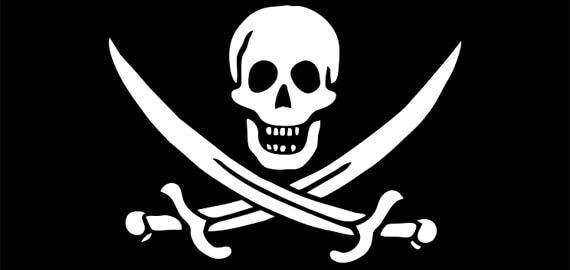CD Projekt Red, developers of one of the best RPGs of 2011, The Witcher 2, made big headlines last week for their change in policies regarding software piracy. Despite being known as a fan-friendly developer for their choice not to remove any form of DRM for The Witcher 2 (currently available only on PC), CD Projekt Red took it upon themselves to recoup some of their (potentially) lost sales due to piracy.
How they went about this upset fans, earning the developer negative PR and convincing them to end the pirate hunt and issue a formal apology to their fans. They had enlisted lawyers to send copyright infringement notices to pirates they'd identified through IP searches requesting approximately $1,200 in damages from each. As it turns out, quite a few other publishers have also engaged in similar strategies.
In response to the CD Projekt Red apology, TorrentFreak, who also gathered and shared info on the most pirated games of 2011, took it upon themselves to show the world that this is not an uncommon situation, that many other developers and publishers have attempted to use these tactics to earn money from pirates.
"So, addressing concerns that CD Projekt might have been unfairly singled out, TorrentFreak decided to dig deep into the archives of various resources including legal firms, campaign groups and the account holders themselves, to find out which other games companies — either directly or through local distributors — have been generating revenue from cash settlement schemes in recent years."
So, who else has been after software pirates to earn extra money months after the release of their games?
- Codemasters for Colin McRae: Dirt and Operation Flashpoint: Red River (demanded 800 Euros)
- DAEDALIC Entertainment on behalf of LucasArts.
- Koch Media, on behalf of Techland for Dead Island.
- Koch Media, on behalf of Square Enix for Deus Ex: Human Revolution, Dungeon Siege III (800 Euros from each pirate), several Final Fantasy titles and Kane & Lynch 2.
- Square Enix again for Just Cause 2 (several hundred Euros).
- Techland for Nail'd.
- Ubisoft for Rainbow Six: Vegas.
The list goes on and on and other games mentioned included Tropico 3 & 4, the Painkiller expansions and various other smaller releases.
While we understand the problem with piracy and how it affects legitimate users (with crappy DRM), the bigger issue is whether or not said pirates would have bought the game if it were not available to them for free. Are they only downloading it because it's free? Are any of the pirates purchasing the game after trying it for free? More importantly, where are the substantially large numbers coming from (800 Euros) and how much of that settlement goes to the publisher and developer?
There's no right answer (yet) and it's a controversial topic, but we are already starting to see the affect on PC gaming, with many major titles releasing on consoles only and PC-only games starting to come using play4free models. Perhaps the industry should look at our 10 fun ways to stop video game piracy.
How do you feel about publishers sending lawyers after alleged software pirates on per game basis?
-
Follow me on Twitter @rob_keyes.
Source: TorrentFreak

